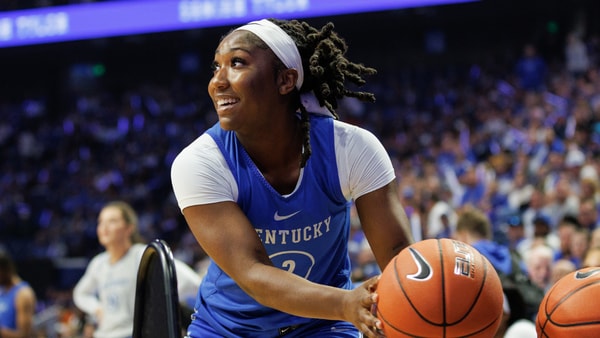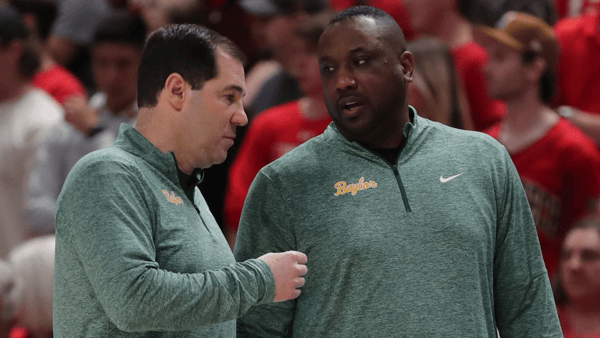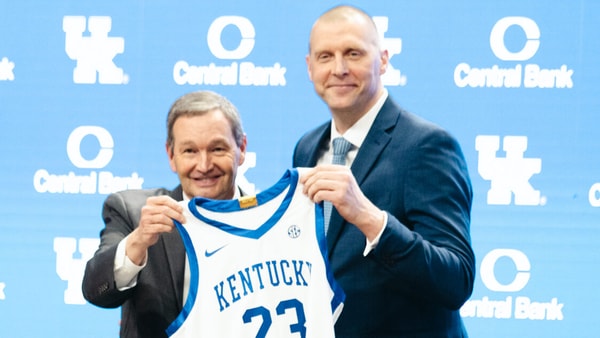
Every generation has its seminal moment...An event whose memory is etched onto our souls...We not only remember where we were and what we were doing, but also all of the hues, fragrances, and melodies of the millisecond...The excitements and anxieties and real-life-lessons shape us for a lifetime.
For the Greatest Generation, it was Pearl Harbor, and the free world uniting to defeat history's worst menace. For Boomers, it was the Kennedy assassination, and the crushing swell of conspiracy and cynicism that ensued. For Millennials, it was 9-11, and the paralyzing dread of terror, metastasizing into the death of privacy and civility.
We Gen Xers often struggle to identify our epochal occasion. Was it the Challenger crash? The Berlin Wall fall? The
tank in Tiananmen Square?
I would argue there was no instance more memorable nor more defining than the conclusion of an ice hockey contest that took place in Lake Placid, New York on February 22, 1980. In the medal round of the Winter Olympic Games, as the deep dark horse Americans skated out the final seconds of a 4-3 lead over the heavily favored Soviet Union, ABC's Al Michaels iconically intoned: "Do you believe in miracles? YES!" Sports Illustrated later declared it the top sports moment of the 20th Century:
https://youtu.be/qYscemhnf88
The "Miracle on Ice" had been preceded by the 1972 "Mugging in Munich." That time, the hoopster boys in red, white and blue were heavily favored to preserve Team USA's perfect Summer Olympics record by capturing the country's eighth consecutive gold medal. Indeed, they led by one point when the "final" horn sounded. But the confused (and perhaps corrupt) officiating squad reset the clock, handing the Soviets second and third and fourth chances, culminating in a play eerily foreshadowing "
The Shot," except this time, Grant Hill-novich steps on the baseline, and Un-Christian Laettner knocks his defenders to the floor:
https://youtu.be/1dyoTkX7Ypc
The hockey victory eight years later was more than sweet revenge. It was a triumph of David over Goliath, of good over evil. An amateur squad of college kids vanquished the highly-professionalized Soviets, whose national Olympic teams had been abetted too long by shady officiating and whispers of rampant drug use (that have amplified into clear
shouts in recent years).
Of course, as this columnist reminds you
ad nauseam, sport so often reflects, magnifies and exemplifies the greater culture and body politic. And this was a paradigmatic case.
By the late 1970s, the intense US/USSR antagonisms that had peaked during the 1962 Cuban Missile Crisis had dissipated into a calmer Cold War. But as the decade concluded, the Soviets' brutal invasion of Afghanistan revealed them again as the world's most sinister force against self-determination and freedom.
Just two months later, the US skaters didn't simply strike a blow against Russian Olympic mendacity; the flag-waving reverie that followed was a full-throated exclamation for democratic triumph, a return to glory for a country that had been beaten down by inflation, malaise and an agonizing Iran hostage crisis. The renewed sense of prideful patriotism and anti-Soviet antipathy helped pave the way later that year for the election of a President for whom the fight against Communism had been central to his personal psyche ever since he had appeared on the big screen.
Ronald Reagan did not simply tap into the nationalistic fervor unleashed on that Lake Placid rink. He also refocused attention on the Soviet menace. US anti-Communism had been deeply undermined by the self-serving antics of nefarious pols like Senator Joe McCarthy, and then the tragic official missteps that culminated in the disastrous Vietnam War. But Reagan recognized the continuing Soviet threat; and he exploded budget deficits by dramatic expanding the US military, and reminded Americans of Communism's true nature. In 1983, the President unforgettably
labeled the USSR an "evil empire": "Let us be aware that while they preach the supremacy of the State, declare its omnipotence over individual man, and predict its eventual domination of all peoples on the earth, they are the focus of evil in the modern world."
Undoubtedly, this made an impression upon a 31-year-old KGB agent stationed in St. Petersburg. Indeed, Reagan's words and subsequent actions helped lay the groundwork for the ultimate fall and dissolution of the global superpower that the loyal Soviet spy so adored. And when a few decades later he assumed national power, Vladimir Putin made it his life's mission to restore the glory of the old empire, and stick it to hypocritical capitalists who had followed Reagan's example.
===
Today, Russian President Vladimir Putin is a monstrous, murderous thug. His crimes against humanity are legion. In his own country, dissent is stifled through intimidation, imprisonment, and often assassination. His recent annexation of Crimea and destabilization of Ukraine have been marked by underhanded violence, brazen violations of international law and principle, and ultimately the
murder of 298 innocents aboard Malaysian Air Flight 17. In Syria, Putin's brutal aggression and civilian-targeted bombing campaigns are directly responsible for those heart-breaking pictures of wounded and displaced children that are filling your Facebook feed.
It's no wonder that Vladimir Putin has been deeply unpopular in the United States. As recently as this July, when the two parties couldn't agree on anything or anyone, Putin's "net-favorable rating" (the percentage of those Americans who had a favorable opinion minus those who viewed him unfavorably) was approximately
minus 50% among both Democrats and Republicans.
And then candidate Donald Trump began to double down on his praise of the Russian leader, comparing him favorably to the US President. And then President-Elect Donald Trump termed "ridiculous" the consensus conclusion of US intelligence agencies that Russia was responsible for hacking efforts that interfered with our elections. And now, according to a
December poll, Putin's net favorable among Republicans, is only
minus 10%; while a full 35% of Americans who voted for Trump have a
favorable opinion of the dictator. The Oval Office's current occupant pointedly
opined, "Ronald Reagan would roll over in his grave."
As I elaborated
here, each side of our deeply divided and polarized body politic now too often looks across the aisle and sees the enemy. When the average Trump-voting, Breitbart-reading, Fox News-watching Republican watches Democrats blame the election results on the Kremlin, it's a natural instinct not simply to decry the sore losing, but to find sympathy in the target of the accusations: The enemy of my enemy is my friend. While thoughtful GOP leaders such as Senators McConnell, Rubio, McCain and Graham call for investigation and protest Russian-friendly presidential appointments, they're often too easy to dismiss by Trump acolytes as the kind of "establishment" Republicans who've messed up our foreign policy for decades.
Out of all of the election's ramifications, this should be the most frightening concern for serious Americans. We cannot allow Vladimir Putin to undermine democratic institutions across the world, especially in our homeland. Democrats must make clear that the effort to expose, understand, and counteract Russian hacking is not about re-litigating the presidential election. (We
lost; you won; we will
accept our silver medals, eventually.) Republicans must make clear that the essence of the party of Lincoln is the promise of freedom, and that the essence of the party of Reagan is a revulsion against totalitarianism. And the press can help restore its
credibility by focusing renewed, objective attention on Putin's misdeeds, and less on the partisan back-and-forth that plays into Putin's hands.
The United States of America won the Cold War. It's time we remember the bi-partisan resolve that resulted in that victory. And it's time to understand that when we identify fellow Americans as our enemies, it only serves the interests of those who really do want to do us harm.
 Every generation has its seminal moment...An event whose memory is etched onto our souls...We not only remember where we were and what we were doing, but also all of the hues, fragrances, and melodies of the millisecond...The excitements and anxieties and real-life-lessons shape us for a lifetime.
For the Greatest Generation, it was Pearl Harbor, and the free world uniting to defeat history's worst menace. For Boomers, it was the Kennedy assassination, and the crushing swell of conspiracy and cynicism that ensued. For Millennials, it was 9-11, and the paralyzing dread of terror, metastasizing into the death of privacy and civility.
We Gen Xers often struggle to identify our epochal occasion. Was it the Challenger crash? The Berlin Wall fall? The tank in Tiananmen Square?
I would argue there was no instance more memorable nor more defining than the conclusion of an ice hockey contest that took place in Lake Placid, New York on February 22, 1980. In the medal round of the Winter Olympic Games, as the deep dark horse Americans skated out the final seconds of a 4-3 lead over the heavily favored Soviet Union, ABC's Al Michaels iconically intoned: "Do you believe in miracles? YES!" Sports Illustrated later declared it the top sports moment of the 20th Century:
https://youtu.be/qYscemhnf88
The "Miracle on Ice" had been preceded by the 1972 "Mugging in Munich." That time, the hoopster boys in red, white and blue were heavily favored to preserve Team USA's perfect Summer Olympics record by capturing the country's eighth consecutive gold medal. Indeed, they led by one point when the "final" horn sounded. But the confused (and perhaps corrupt) officiating squad reset the clock, handing the Soviets second and third and fourth chances, culminating in a play eerily foreshadowing "The Shot," except this time, Grant Hill-novich steps on the baseline, and Un-Christian Laettner knocks his defenders to the floor:
https://youtu.be/1dyoTkX7Ypc
The hockey victory eight years later was more than sweet revenge. It was a triumph of David over Goliath, of good over evil. An amateur squad of college kids vanquished the highly-professionalized Soviets, whose national Olympic teams had been abetted too long by shady officiating and whispers of rampant drug use (that have amplified into clear shouts in recent years).
Of course, as this columnist reminds you ad nauseam, sport so often reflects, magnifies and exemplifies the greater culture and body politic. And this was a paradigmatic case.
By the late 1970s, the intense US/USSR antagonisms that had peaked during the 1962 Cuban Missile Crisis had dissipated into a calmer Cold War. But as the decade concluded, the Soviets' brutal invasion of Afghanistan revealed them again as the world's most sinister force against self-determination and freedom.
Just two months later, the US skaters didn't simply strike a blow against Russian Olympic mendacity; the flag-waving reverie that followed was a full-throated exclamation for democratic triumph, a return to glory for a country that had been beaten down by inflation, malaise and an agonizing Iran hostage crisis. The renewed sense of prideful patriotism and anti-Soviet antipathy helped pave the way later that year for the election of a President for whom the fight against Communism had been central to his personal psyche ever since he had appeared on the big screen.
Ronald Reagan did not simply tap into the nationalistic fervor unleashed on that Lake Placid rink. He also refocused attention on the Soviet menace. US anti-Communism had been deeply undermined by the self-serving antics of nefarious pols like Senator Joe McCarthy, and then the tragic official missteps that culminated in the disastrous Vietnam War. But Reagan recognized the continuing Soviet threat; and he exploded budget deficits by dramatic expanding the US military, and reminded Americans of Communism's true nature. In 1983, the President unforgettably labeled the USSR an "evil empire": "Let us be aware that while they preach the supremacy of the State, declare its omnipotence over individual man, and predict its eventual domination of all peoples on the earth, they are the focus of evil in the modern world."
Undoubtedly, this made an impression upon a 31-year-old KGB agent stationed in St. Petersburg. Indeed, Reagan's words and subsequent actions helped lay the groundwork for the ultimate fall and dissolution of the global superpower that the loyal Soviet spy so adored. And when a few decades later he assumed national power, Vladimir Putin made it his life's mission to restore the glory of the old empire, and stick it to hypocritical capitalists who had followed Reagan's example.
===
Today, Russian President Vladimir Putin is a monstrous, murderous thug. His crimes against humanity are legion. In his own country, dissent is stifled through intimidation, imprisonment, and often assassination. His recent annexation of Crimea and destabilization of Ukraine have been marked by underhanded violence, brazen violations of international law and principle, and ultimately the murder of 298 innocents aboard Malaysian Air Flight 17. In Syria, Putin's brutal aggression and civilian-targeted bombing campaigns are directly responsible for those heart-breaking pictures of wounded and displaced children that are filling your Facebook feed.
It's no wonder that Vladimir Putin has been deeply unpopular in the United States. As recently as this July, when the two parties couldn't agree on anything or anyone, Putin's "net-favorable rating" (the percentage of those Americans who had a favorable opinion minus those who viewed him unfavorably) was approximately minus 50% among both Democrats and Republicans.
And then candidate Donald Trump began to double down on his praise of the Russian leader, comparing him favorably to the US President. And then President-Elect Donald Trump termed "ridiculous" the consensus conclusion of US intelligence agencies that Russia was responsible for hacking efforts that interfered with our elections. And now, according to a December poll, Putin's net favorable among Republicans, is only minus 10%; while a full 35% of Americans who voted for Trump have a favorable opinion of the dictator. The Oval Office's current occupant pointedly opined, "Ronald Reagan would roll over in his grave."
As I elaborated here, each side of our deeply divided and polarized body politic now too often looks across the aisle and sees the enemy. When the average Trump-voting, Breitbart-reading, Fox News-watching Republican watches Democrats blame the election results on the Kremlin, it's a natural instinct not simply to decry the sore losing, but to find sympathy in the target of the accusations: The enemy of my enemy is my friend. While thoughtful GOP leaders such as Senators McConnell, Rubio, McCain and Graham call for investigation and protest Russian-friendly presidential appointments, they're often too easy to dismiss by Trump acolytes as the kind of "establishment" Republicans who've messed up our foreign policy for decades.
Out of all of the election's ramifications, this should be the most frightening concern for serious Americans. We cannot allow Vladimir Putin to undermine democratic institutions across the world, especially in our homeland. Democrats must make clear that the effort to expose, understand, and counteract Russian hacking is not about re-litigating the presidential election. (We lost; you won; we will accept our silver medals, eventually.) Republicans must make clear that the essence of the party of Lincoln is the promise of freedom, and that the essence of the party of Reagan is a revulsion against totalitarianism. And the press can help restore its credibility by focusing renewed, objective attention on Putin's misdeeds, and less on the partisan back-and-forth that plays into Putin's hands.
The United States of America won the Cold War. It's time we remember the bi-partisan resolve that resulted in that victory. And it's time to understand that when we identify fellow Americans as our enemies, it only serves the interests of those who really do want to do us harm.
Every generation has its seminal moment...An event whose memory is etched onto our souls...We not only remember where we were and what we were doing, but also all of the hues, fragrances, and melodies of the millisecond...The excitements and anxieties and real-life-lessons shape us for a lifetime.
For the Greatest Generation, it was Pearl Harbor, and the free world uniting to defeat history's worst menace. For Boomers, it was the Kennedy assassination, and the crushing swell of conspiracy and cynicism that ensued. For Millennials, it was 9-11, and the paralyzing dread of terror, metastasizing into the death of privacy and civility.
We Gen Xers often struggle to identify our epochal occasion. Was it the Challenger crash? The Berlin Wall fall? The tank in Tiananmen Square?
I would argue there was no instance more memorable nor more defining than the conclusion of an ice hockey contest that took place in Lake Placid, New York on February 22, 1980. In the medal round of the Winter Olympic Games, as the deep dark horse Americans skated out the final seconds of a 4-3 lead over the heavily favored Soviet Union, ABC's Al Michaels iconically intoned: "Do you believe in miracles? YES!" Sports Illustrated later declared it the top sports moment of the 20th Century:
https://youtu.be/qYscemhnf88
The "Miracle on Ice" had been preceded by the 1972 "Mugging in Munich." That time, the hoopster boys in red, white and blue were heavily favored to preserve Team USA's perfect Summer Olympics record by capturing the country's eighth consecutive gold medal. Indeed, they led by one point when the "final" horn sounded. But the confused (and perhaps corrupt) officiating squad reset the clock, handing the Soviets second and third and fourth chances, culminating in a play eerily foreshadowing "The Shot," except this time, Grant Hill-novich steps on the baseline, and Un-Christian Laettner knocks his defenders to the floor:
https://youtu.be/1dyoTkX7Ypc
The hockey victory eight years later was more than sweet revenge. It was a triumph of David over Goliath, of good over evil. An amateur squad of college kids vanquished the highly-professionalized Soviets, whose national Olympic teams had been abetted too long by shady officiating and whispers of rampant drug use (that have amplified into clear shouts in recent years).
Of course, as this columnist reminds you ad nauseam, sport so often reflects, magnifies and exemplifies the greater culture and body politic. And this was a paradigmatic case.
By the late 1970s, the intense US/USSR antagonisms that had peaked during the 1962 Cuban Missile Crisis had dissipated into a calmer Cold War. But as the decade concluded, the Soviets' brutal invasion of Afghanistan revealed them again as the world's most sinister force against self-determination and freedom.
Just two months later, the US skaters didn't simply strike a blow against Russian Olympic mendacity; the flag-waving reverie that followed was a full-throated exclamation for democratic triumph, a return to glory for a country that had been beaten down by inflation, malaise and an agonizing Iran hostage crisis. The renewed sense of prideful patriotism and anti-Soviet antipathy helped pave the way later that year for the election of a President for whom the fight against Communism had been central to his personal psyche ever since he had appeared on the big screen.
Ronald Reagan did not simply tap into the nationalistic fervor unleashed on that Lake Placid rink. He also refocused attention on the Soviet menace. US anti-Communism had been deeply undermined by the self-serving antics of nefarious pols like Senator Joe McCarthy, and then the tragic official missteps that culminated in the disastrous Vietnam War. But Reagan recognized the continuing Soviet threat; and he exploded budget deficits by dramatic expanding the US military, and reminded Americans of Communism's true nature. In 1983, the President unforgettably labeled the USSR an "evil empire": "Let us be aware that while they preach the supremacy of the State, declare its omnipotence over individual man, and predict its eventual domination of all peoples on the earth, they are the focus of evil in the modern world."
Undoubtedly, this made an impression upon a 31-year-old KGB agent stationed in St. Petersburg. Indeed, Reagan's words and subsequent actions helped lay the groundwork for the ultimate fall and dissolution of the global superpower that the loyal Soviet spy so adored. And when a few decades later he assumed national power, Vladimir Putin made it his life's mission to restore the glory of the old empire, and stick it to hypocritical capitalists who had followed Reagan's example.
===
Today, Russian President Vladimir Putin is a monstrous, murderous thug. His crimes against humanity are legion. In his own country, dissent is stifled through intimidation, imprisonment, and often assassination. His recent annexation of Crimea and destabilization of Ukraine have been marked by underhanded violence, brazen violations of international law and principle, and ultimately the murder of 298 innocents aboard Malaysian Air Flight 17. In Syria, Putin's brutal aggression and civilian-targeted bombing campaigns are directly responsible for those heart-breaking pictures of wounded and displaced children that are filling your Facebook feed.
It's no wonder that Vladimir Putin has been deeply unpopular in the United States. As recently as this July, when the two parties couldn't agree on anything or anyone, Putin's "net-favorable rating" (the percentage of those Americans who had a favorable opinion minus those who viewed him unfavorably) was approximately minus 50% among both Democrats and Republicans.
And then candidate Donald Trump began to double down on his praise of the Russian leader, comparing him favorably to the US President. And then President-Elect Donald Trump termed "ridiculous" the consensus conclusion of US intelligence agencies that Russia was responsible for hacking efforts that interfered with our elections. And now, according to a December poll, Putin's net favorable among Republicans, is only minus 10%; while a full 35% of Americans who voted for Trump have a favorable opinion of the dictator. The Oval Office's current occupant pointedly opined, "Ronald Reagan would roll over in his grave."
As I elaborated here, each side of our deeply divided and polarized body politic now too often looks across the aisle and sees the enemy. When the average Trump-voting, Breitbart-reading, Fox News-watching Republican watches Democrats blame the election results on the Kremlin, it's a natural instinct not simply to decry the sore losing, but to find sympathy in the target of the accusations: The enemy of my enemy is my friend. While thoughtful GOP leaders such as Senators McConnell, Rubio, McCain and Graham call for investigation and protest Russian-friendly presidential appointments, they're often too easy to dismiss by Trump acolytes as the kind of "establishment" Republicans who've messed up our foreign policy for decades.
Out of all of the election's ramifications, this should be the most frightening concern for serious Americans. We cannot allow Vladimir Putin to undermine democratic institutions across the world, especially in our homeland. Democrats must make clear that the effort to expose, understand, and counteract Russian hacking is not about re-litigating the presidential election. (We lost; you won; we will accept our silver medals, eventually.) Republicans must make clear that the essence of the party of Lincoln is the promise of freedom, and that the essence of the party of Reagan is a revulsion against totalitarianism. And the press can help restore its credibility by focusing renewed, objective attention on Putin's misdeeds, and less on the partisan back-and-forth that plays into Putin's hands.
The United States of America won the Cold War. It's time we remember the bi-partisan resolve that resulted in that victory. And it's time to understand that when we identify fellow Americans as our enemies, it only serves the interests of those who really do want to do us harm.







Discuss This Article
Comments have moved.
Join the conversation and talk about this article and all things Kentucky Sports in the new KSR Message Board.
KSBoard